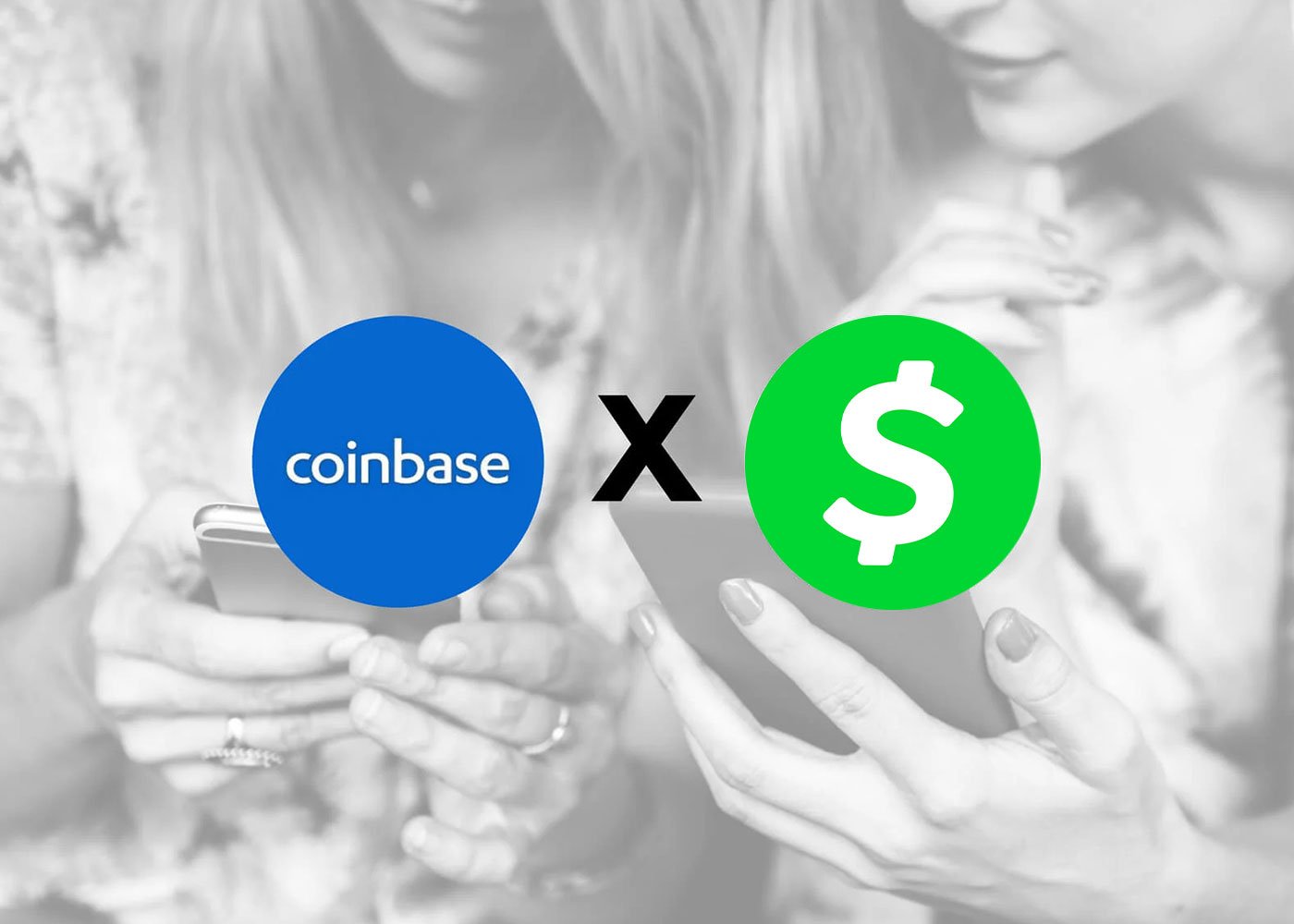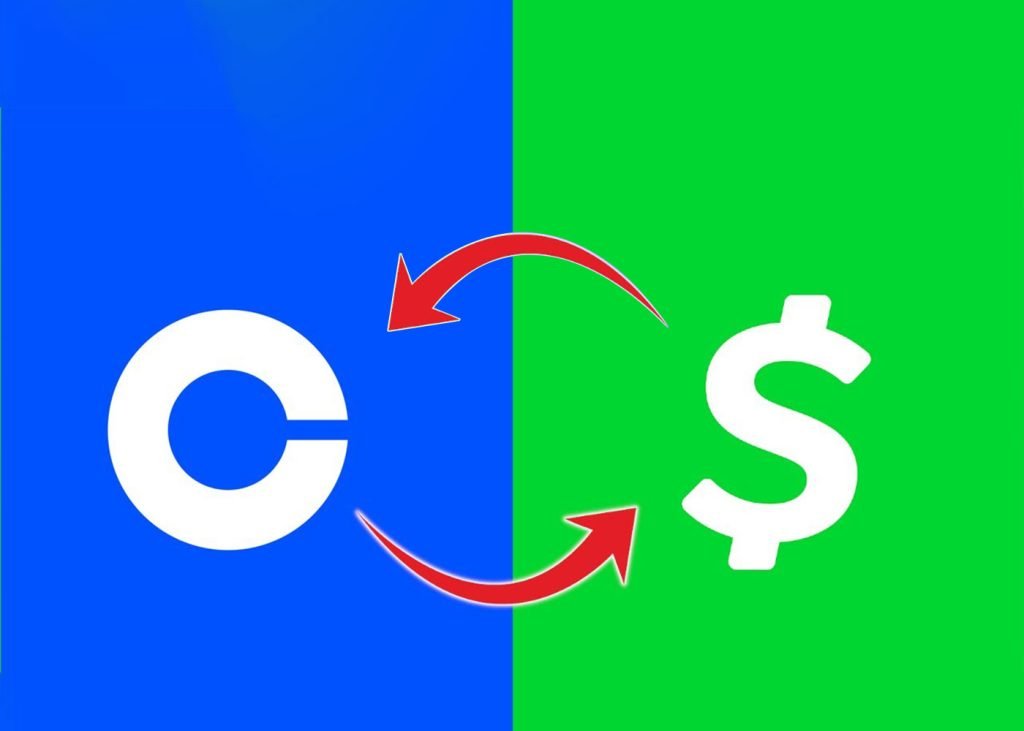
Are you seeking a straightforward method for purchasing cryptocurrency? Consider two leading options, Cash App and Coinbase. Both platforms provide a convenient means to invest in digital currencies, but they differ significantly beyond this basic function.
Cash App functions as a payment app and stock brokerage service that additionally enables the buying and selling of Bitcoin (BTC). Coinbase, on the other hand, is one of the most prevalent crypto exchanges, catering to both novice and experienced investors. You need to know both platforms in order to understand the differences between the two. To determine which platform aligns with your requirements, read our comprehensive comparison of Cash App vs. Coinbase, highlighting their distinctive features.
What is Cash App?
As fintech continues to advance, peer-to-peer payment apps such as Cash App have emerged as a popular payment option for many users. Cash App enables quick and easy money transfers between individuals through their mobile devices. Along with mobile banking, the app also allows users to invest in stocks and Bitcoin through its platform. In addition, Cash App offers a feature called Cash App Taxes, which enables users to file their taxes through the app.
Cash App is a P2P payment app that was launched in 2013 by Block, Inc. (previously known as Square, Inc.) as a competitor to other mobile payment apps such as Venmo and PayPal. While Cash App offers banking services and debit cards through its bank partners, it is not a bank itself. The balance in users’ accounts is insured by the FDIC through Cash App’s partner banks. Cash App also provides investment services through its subsidiary, Cash App Investing LLC, which is registered with the SEC as a broker-dealer and is a member of FINRA.
Through Cash App, users can easily send and receive money, obtain a debit card, and set up direct deposits. The app’s investing feature allows users to invest in stocks with as little as $1 by purchasing fractional shares. Additionally, users can buy, sell, or transfer Bitcoin using the app. Cash App Taxes, previously known as Credit Karma Tax, is a free tax-filing service offered by Cash App.
How to Use Cash App?
To start using Cash App, you must first download the mobile app, which is available for both iOS and Android. Alternatively, you can sign up for an account online. The app has different tabs for its various services, such as banking, debit card, payments, investing, and Bitcoin.
To send or receive money through Cash App, you need to link your existing bank account to your Cash App account after signing up. Once your payment source is connected, you can create a payment by entering a dollar amount on the green payment tab and tapping “Pay” or “Request.”
Each Cash App user has a unique username called a $Cashtag. You can pay or request money from individuals or businesses by searching for their $Cashtag, name, phone number, or email address. You can choose to send funds from your Cash App balance or your linked funding source.
When you receive payments, the money is kept in your Cash App balance. You can keep it there or transfer it to your linked bank account. Cash App charges a fee for instant transfers, but you can also choose a no-fee standard transfer that typically takes one to three business days to complete. If you want to add money to your Cash App account, you can navigate to the app’s banking tab and select “Add Cash” to add a decided amount.

What is Coinbase?
Coinbase is an exchange that allows you to purchase some of the most popular cryptocurrencies, including Bitcoin, Ethereum, and Solana. Although there are over 120 different types of cryptocurrencies on the platform, not every coin is supported. Despite this, Coinbase is still an excellent option for most purposes as it enables you to trade the most popular types of crypto.
While Coinbase may not support every cryptocurrency, it does support many of the most popular coins. Therefore, most individuals who buy and sell on Coinbase are unlikely to face any issues. However, advanced traders may find it necessary to set up an account elsewhere.
Opening a Coinbase account is a straightforward process. According to Coinbase, you will need the following to create an account:
- You must be at least 18 years old
- A government-issued photo ID -a driver’s license or state ID would suffice-
- A smartphone or a computer with access to the internet
- Your phone number for an SMS verification
- The latest version of your internet browser
If none of these requirements is an issue, you are ready to create an account. Simply enter your first and last name, email, and state of residence, and create a password. You’ll also need to check the box confirming that you are at least 18 years old. The only step left is to set a strong, unique password to keep your account secure.
About Fees on the Platforms
Coinbase holds an edge over Cash App in terms of crypto trading fees, a critical factor to consider if you plan on regularly investing in cryptocurrency. Cash App does not publish its fee structure but calculates fees during the purchase process. Users can view the cost before confirming the transaction. Fees generally exceed 2% on purchases of $100 or less and drop on larger purchases but still exceed the charges imposed by leading crypto exchanges.
Fee structures on Coinbase are a bit complex. The platform charges varying fees depending on whether you opt for its simple or advanced trading options. The latter, which replaced its Coinbase Pro platform, boasts the most attractive fees, ranging from 0% to 0.60%. Fees depend on trading volume and use a maker-taker model, where Coinbase charges a taker fee if an order is filled immediately and a maker fee if it isn’t.
The simple trading option on Coinbase does not publish a fee structure, instead imposing a flat fee of $0.99 to $2.99 for smaller trades and a variable fee, typically under 1.5%, for trades above $205. Coinbase accepts multiple payment methods, some of which, such as debit cards, attract additional fees. Users can avoid extra charges by opting for ACH transfers from their bank account.
The Available Cryptos in Coinbase and Cash App
When it comes to cryptocurrency selection, Coinbase enjoys a significant edge over Cash App. With over 150 different cryptocurrencies, Coinbase ranks among the leading exchanges regarding the breadth of its offering, continually introducing new coins. By creating an account on Coinbase, you’ll gain access to an extensive range of cryptos, including major market leaders, stablecoins, and several smaller coins. Furthermore, Coinbase permits crypto staking, enabling you to earn rewards on several types of cryptocurrency.
Cash App, on the other hand, exclusively offers Bitcoin. While this feature may suffice if you’re primarily seeking a payment or stock trading app with an added Bitcoin purchase option, if you’re interested in serious cryptocurrency investing, opting for a dedicated crypto exchange is a better choice. Unfortunately, Cash App lacks many prominent cryptocurrencies, including Ethereum (ETH), Cardano (ADA), USD Coin (USDC), Solana (SOL), and Polkadot (DOT).
The Wallets
Both Cash App and Coinbase provide custodial wallets where you can transfer and receive cryptocurrencies (Bitcoin-only in Cash App’s case) utilizing your wallet address. These are blockchain wallets managed by the platform itself, also called hosted wallets. If you want complete control of your cryptocurrency, it’s recommended to transfer it to your non-custodial wallet.
Coinbase also provides a non-custodial wallet known as Coinbase Wallet. Despite being created by Coinbase, anyone can use it, making it unnecessary to hold an account with the exchange. It’s an excellent option for storing cryptocurrencies and other digital assets like non-fungible tokens (NFTs), and it’s highly regarded as a wallet option.
The Security Differences Between Two Coins
Cash App and Coinbase are both considered safe options for buying and selling cryptocurrency, although Coinbase offers more protections for its clients. It has insurance and stores most cryptocurrency offline in cold storage, making it harder to steal.
Cash App uses advanced encryption and fraud detection technology to protect its users’ data and money. It sends a unique one-time-use login code each time you sign in, and you can enable a security lock to require a passcode to send funds. Additionally, account alerts can be set up to notify you of any activity. While some of its customers’ Bitcoin is stored in cold storage, Cash App does not disclose how much.
Coinbase is one of the most secure cryptocurrency exchanges, with several measures in place to protect its customers and their funds. Clients must enable two-factor authentication (2FA), and Coinbase keeps 98% of crypto funds in cold storage. An insurance policy covers the crypto funds stored in hot wallets, and U.S. client accounts on Coinbase have FDIC insurance to recover cash funds up to $250,000 per user.
Both platforms have had security incidents in the past. In 2021, a former Cash App employee stole sensitive data from over 8 million users, while some hackers exploited a safety flaw in Coinbase’s SMS user account recovery tools to steal funds from at least 6,000 clients. Coinbase fixed the vulnerability and reimbursed those affected.
Conclusion
In conclusion, both Cash App and Coinbase offer convenient options for buying and selling cryptocurrencies. While Coinbase has a wider selection of coins and is more geared towards advanced traders, Cash App is a great option for those who want a simple, user-friendly interface and the ability to easily send and receive money. Ultimately, the choice between the two platforms will depend on your individual needs and preferences. Regardless of which platform you choose in Cash App vs. Coinbase debate, be sure to do your research and take necessary precautions to keep your cryptocurrency investments safe.







